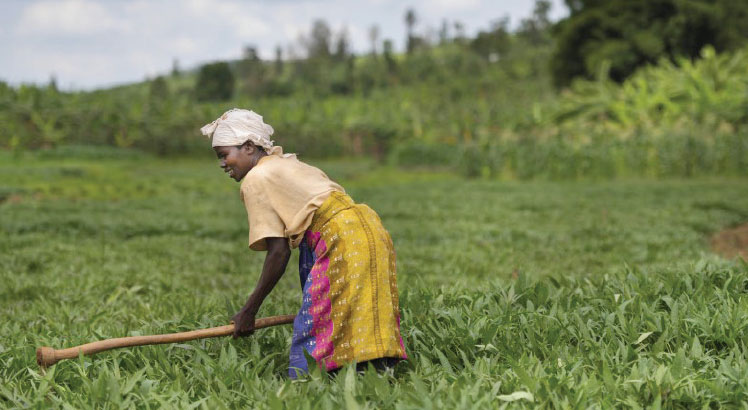Mwapata urges boost in social safety nets
Mwapata Institute, an independent agricultural policy think-tank, has recommended increasing the scope of social safety nets to protect vulnerable farmers from rising cost of inputs and erratic weather patterns.
In a study titled ‘Social safety net programme, repeated weather shocks and household resilience to food insecurity in Malawi,’ Mwapata Institute found that the Malawi government’s social protection programmes are effective in improving farmers’ resilience to shocks.

Government implements three social protection programmes targeting three intervention areas such as productivity-enhancing social safety nets, direct welfare transfers and market intervention for the poor to reduce poverty and protect the most vulnerable segments of the population.
The Mwapata Institute study found that the most resilient households in 2010 remained resilient in 2019 and about a third of the households that were least resilient in 2010 improved and became more resilient by 2019.
The researchers have recommended that the social safety net programmes should be strengthened to address issues of fertiliser use, efficiency-targeting and other implementation challenges such as rising costs of inputs.
Reads the study in part: “This could include a combination of an improved subsidy programme that goes beyond inorganic fertiliser to address soil health concerns, for example, supporting legume seeds, organic fertilisers or agricultural lime and programmes to improve agricultural research, development and extension.”
However, economic experts have expressed concern over the sustainability of the proposal, considering that 95 percent of the programme is sponsored by donors.
The World Bank is the largest contributor to the social protection budget, contributing about 36 percent followed by Germany at 27 percent, European Union at 23 percent, Irish Aid at seven percent and Unicef at one percent.
Speaking in an interview on Thursday, Economics Association of Malawi president Betchani Tchereni cautioned that implementing the measures proposed by Mwapata could exert pressure on the fiscus, considering that a significant portion of the budget is taken up by statutory expenses.
He said: “The government has about 78 or 79 percent of the budget committed to payments such as salaries, pensions and interest payments.
“The bigger question is: Can the government afford to play around with the 21 or 22 percent to create room for the social safety nets?”
Mzuzu University agricultural economist Christopher Mbukwa said in an interview that the country’s social protection programme is largely donor-driven, adding that government can reprioritise its expenditure to free up resources.
He said: “We need to review the national budget to assess potential areas of saving that can later be allocated to social protection benefits.”
In the 2023/24 National Budget, the government’s allocation to social protection programme stood at K130 billion, a rise from the previous financial year’s K52 billion.
The increase is largely driven by additional funding from the World Bank through the Malawi Social Support for Resilience Project, which is expected to pump in $181 million (about K32 billion) over a five-year period to target 171 000 households.
Mwapata is an independent agricultural policy think-tank that addresses gaps in agricultural policy development.






One Comment